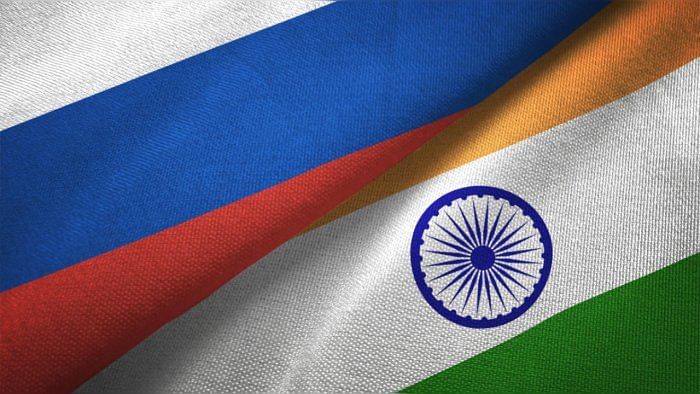
India on Thursday sought to allay the concerns of the United States over its bilateral commerce with Russia, stating that it was just “stabilising”, and not increasing, its “existing economic relations” with the former Soviet Union nation, which recently came under additional sanctions imposed by the western nations.
New Delhi sought to reassure President Joe Biden's administration in Washington DC ahead of the fourth India-US 2+2 ministerial dialogue, which would be held on April 11.
“We have an established economic relation with Russia. Given the current circumstances post development in Ukraine, I think there is an effort by both sides (India and Russia) to ensure that this economic relationship remains stable,” Arindam Bagchi, the spokesperson of the Ministry of External Affairs, said in New Delhi.
The Biden Administration recently not-so-subtly conveyed to New Delhi its displeasure over India's discussion with Russia to explore ways to continue bilateral trade circumventing the sanctions the US and the other western nations imposed on President Vladimir Putin's nation after he ordered launch of military operations in Ukraine on February 24.
“It is not talking about increasing...it is about stabilising it because this (economic) relationship exists and it's in our interest to make sure some of this economic activity continues, and we are trying to see how we can keep that stable,” Bagchi said on Thursday.
The White House once again endorsed Biden's Deputy National Security Advisor on International Economics Daleep Singh's warning to India against any bid to raise its import from sanctions-hit Russia.
“We do not think India should accelerate or increase imports of Russian energy and other commodities, even as obviously those decisions are made by individual countries,” the US President's Press Secretary Jen Psaki told journalists in the White House on Wednesday.
Daleep Singh, the US President's Deputy National Security Advisor on International Economics, had stated in New Delhi last week that the nations trying to circumvent the restrictions the US imposed on transactions with banks in Russia would face “consequences”. He also said that the US would not like to see rapid acceleration of India's imports from Russia, be it energy or any other commodities.
India has already started to buy about 16 million barrels of crude oil from sanction-hit Russia at a discounted price, notwithstanding criticism in the US and the UK.
New Delhi and Moscow are also discussing expanding use of national currencies, rupee and rouble, to circumvent the US sanctions on Russia and pay for imports from each other.
Despite differences between New Delhi and Washington DC over Russia's military aggression against Ukraine, the US stated that its relations with India was based on shared interests in safeguarding “rules-based international order”, underpinned by respect for “sovereignty and territorial integrity of nations”.
The MEA of the Government of India and the US State Department on Thursday simultaneously announced that the two nations would hold the fourth 2+2 ministerial dialogue with India in Washington DC on April 11. External Affairs Minister S Jaishankar and Defence Minister Rajnath Singh will travel to Washington DC for the 2+2 dialogue with their US counterparts – Secretary of State Anthony Blinken and Secretary of Defence Lloyd Austin.
“The relationship between the world's largest democracies is built on a foundation of common values and resilient democratic institutions, and the shared Indo-Pacific interests of a rules-based international order that safeguards sovereignty and territorial integrity. It upholds human rights, and expands regional and global peace and prosperity,” Ned Price, the spokesperson of the US State Department, said in Washington DC.
Check out DH's latest videos:
